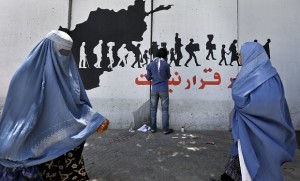The Supreme Court has ordered the Commission on Elections (Comelec) to respond to the petition calling for the prosecution of Smartmatic officials who altered the script, or hash code, of the Comelec’s transparency server on the night of May 9.
During Tuesday’s deliberation, the high court’s en banc ordered Comelec to comment on the petition filed by Atty. Eduardo Bringas, Bishop Reuben Abante and Moses Rivera.
In their petition, they urged the high court to order the Comelec to conduct an “independent and thorough investigation” and eventually file a case against Smartmatic officers and other personnel who tampered with the servers.
READ: SC asked to order Comelec to file cases vs Smartmatic execs
Smartmatic Philippines project manager Marlon Garcia confirmed that the alteration was done but said it was only for “cosmetic” purposes and not intended to rig the elections.
The correction was made after an observer noticed the presence of question marks in some candidates’ names where the letter “ñ” should have appeared.
At the start of the counting following the closing of voting precincts last May 9, Senator Ferdinand “Bongbong” Marcos Jr. was leading in the vice presidential race.
Liberal Party candidate Ma. Leonor “Leni” Robredo upsurged and led the counting by morning of May 10.
Comelec Chairman Andres Bautista earlier said that “the change made in the script of the transparency server is merely cosmetic and will not in any way affect the results, the counting, canvassing of votes and in the source code of the automated election system.”
READ: Comelec says script tweak was minor, did not affect results
Petitioners said Bautista and the other commissioners who have made conclusions on the case should inhibit themselves from the investigation.
At the same time, petitioners also urged the high court to require the poll body “to explain the apparent erratic upsurge and abrupt fall in the discrepancy between the votes for the President and Vice-President from the May 9, 2016 7:25pm; 7:45pm; 8:05pm; and 8:25pm; specifically, where the votes came from and where they were later assigned.”
They said information technology (IT) experts should be allowed to examine the source and hash codes and provide the petitioners and the public a copy of the final report of the Random Manual Audit from the 715 precincts that were audited pursuant to the Comelec rules. RAM


